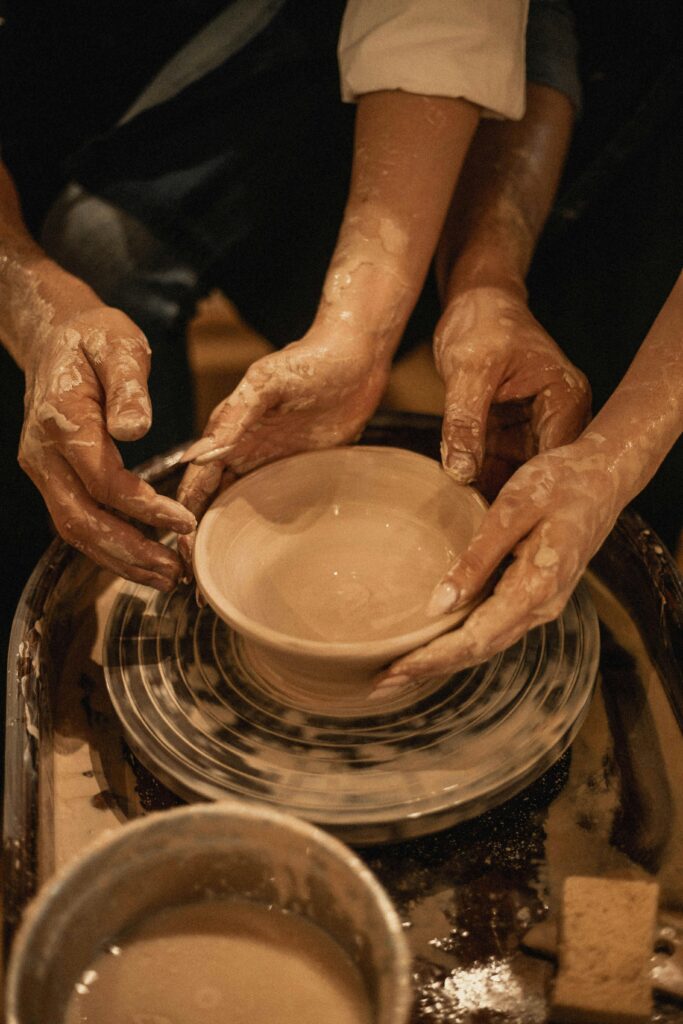We explored our “first formations” this past Sunday, complete with a beautiful example from Jenni using pipe cleaners. The thing I noticed, though, was that all of our pipe cleaners were untouched when we received them. Fresh out of the box (or whatever kind of container pipe cleaners are born into), straight and unblemished.

I don’t think our first formation as human beings is quite so pristine. Since we’re formed by imperfect human beings who were formed by imperfect human beings who were formed by imperfect human beings on back for 200,000 years or so, I have a feeling most of our “starting material” comes with a few twists and wrinkles built in.
This is what I continue to find any time I do ancestor work. There are lessons that have been handed to me from previous generations. Some of those lessons are rich and nourishing. Some of those lessons are—honestly?—a bit toxic. They don’t help me show up the way I most want to. They don’t contribute to my ability to align myself with my life-affirming values.
These lessons show up in subtle ways. In the lives of my most recent ancestors, I see some patterns. When faced with hardship or challenges, sometimes they persevered and found new ways to unexpected opportunities. Other times, though, they ran away and blamed someone else.
The perseverance and openness to new unexpected paths looks a lot of different ways. The stories are inspiring. But the running and blaming looks more or less the same every time. It became an autopilot way for multiple ancestors of mine to deal with anxious situations. No one specifically taught me this lesson. No elder in my family sat me down and said, “This is how we do.” And yet, it shows up in my own autopilot behaviors when I’m not being mindful.
I was recently in an online group where the topic of indigenous wisdom came up. I mentioned a resource that I found particularly meaningful. Another participant spoke up and said, “I don’t find indigenous culture particularly wise. I grew up around an indigenous community, and it was pretty violent and desperate. There wasn’t much wisdom there.”
I immediately shut down. I stayed on the screen, but I didn’t contribute much more to the conversation. And in my mind, I blamed this other participant for being unreceptive. I told a story that this person’s criticism prevented me from being able to safely share my perspective. I ran away (even though I didn’t leave the conversation), and I blamed someone else.
Fortunately, I’ve done enough work that I could recognize what had happened. I didn’t quite catch myself in the moment. Sometimes I’m better at catching myself as my autopilot defenses kick in. Sometimes it takes me having space to recenter and reconnect with my inner wisdom.
I wish I had been able to say in the moment, “Of course there are consequences of colonization and displacement. A present brokenness in indigenous communities doesn’t mean that there is no wisdom in their culture. It means we have some healing work to do. There’s an element of brokenness in any human community.” But I didn’t. That only occurred to me after the fact.
I continue to be grateful for the lessons of my ancestors, and I continue to grow in my own discernment about which lessons are helpful and which ones are less useful. None of us arrived into this life purely tabula rasa. What patterns formed the environment of your first formation? How far back into your family histories do those patterns stretch? What do you think that means for us as a community of people who inherited all sorts of things from our ancestors?
Share this post: